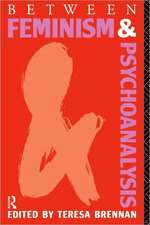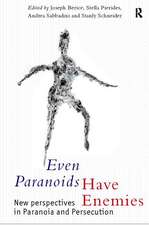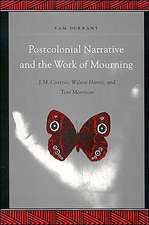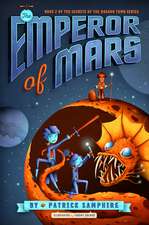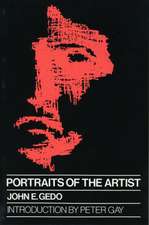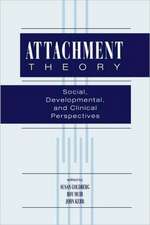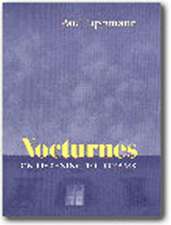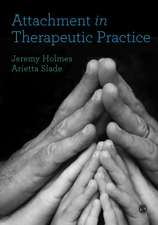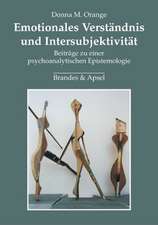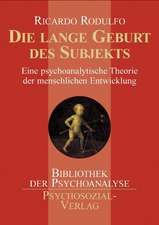The Therapeutic Imagination: Using literature to deepen psychodynamic understanding and enhance empathy
Autor Jeremy Holmesen Limba Engleză Hardback – 19 iun 2014
Working from this premise, in The Therapeutic Imagination Jeremy Holmes argues unashamedly that literate therapists make better therapists. Drawing on psychoanalytic and literary traditions both classical and contemporary, Part I shows how poetry and novels help foster therapists’ understanding of their own imagination-in-action, anatomised into five phases: attachment, reverie, logos, action and reflection. Part II uses the contrast between secure and insecure narrative styles in attachment theory and relates these to literary storytelling and the transformational aspects of therapy. Part III uses literary accounts to illuminate the psychiatric conditions of narcissism, anxiety, splitting and bereavement. Based on Forster’s motto, ‘Only Connect’, Part IV argues, with the help of poetic examples, that a psychiatry shorn of psychodynamic creativity is impoverished and fails to serve its patients.
Clearly and elegantly written, and drawing on the author’s deep knowledge of psychoanalysis and attachment theory and a lifetime of clinical experience, Holmes convincingly links the literary and psychoanalytic canon. The Therapeutic Imagination is a compelling and insightful work that will strike chords for therapists, counsellors, psychoanalysts, psychiatrists and psychologists.
| Toate formatele și edițiile | Preț | Express |
|---|---|---|
| Paperback (1) | 476.60 lei 6-8 săpt. | |
| Taylor & Francis – 21 ian 2016 | 476.60 lei 6-8 săpt. | |
| Hardback (1) | 1167.36 lei 6-8 săpt. | |
| Taylor & Francis – 19 iun 2014 | 1167.36 lei 6-8 săpt. |
Preț: 1167.36 lei
Preț vechi: 1423.61 lei
-18% Nou
Puncte Express: 1751
Preț estimativ în valută:
223.40€ • 231.91$ • 186.28£
223.40€ • 231.91$ • 186.28£
Carte tipărită la comandă
Livrare economică 22 martie-05 aprilie
Preluare comenzi: 021 569.72.76
Specificații
ISBN-13: 9780415819572
ISBN-10: 0415819571
Pagini: 214
Dimensiuni: 156 x 234 x 18 mm
Greutate: 0.56 kg
Ediția:1
Editura: Taylor & Francis
Colecția Routledge
Locul publicării:Oxford, United Kingdom
ISBN-10: 0415819571
Pagini: 214
Dimensiuni: 156 x 234 x 18 mm
Greutate: 0.56 kg
Ediția:1
Editura: Taylor & Francis
Colecția Routledge
Locul publicării:Oxford, United Kingdom
Public țintă
Postgraduate and ProfessionalCuprins
The Poetics of Psychotherapy. Psychotherapy and Narrative. Psychotherapeutic Approaches to Psychiatric Diagnoses. ‘Only Connect’: Psychotherapy and Psychiatry.
Recenzii
'The Therapeutic Imagination is a beautiful, innovative book, both in Holme's creative approach to writing and his deep psychological insights. It is highly recommended to psychotherapists of all schools, psychiatric training centers, and all readers who are interested in innovating developments in psychiatry.'- Alma Halbert Bond, PsycCRITIQUES
‘Once again, Jeremy Holmes dazzles. Part master class in psychoanalytic psychotherapy and part psychological journey through classics of English literature, this tour de force is a scholarly, integrative and deeply original look at the links between psychotherapy and the imagination. Moving deftly between fiction and the consulting room, Holmes brings alive the literary, artistic and creative processes that make for truly helpful and transforming psychotherapy. A wonderful read.’ - Arietta Slade, Clinical Professor, Yale Child Study Center, USA
‘Jeremy Holmes's The Therapeutic Imagination succeeds in rethinking the assumptions of one discipline from the standpoint of another, without compromising the integrity of either one. It should be required reading for anyone interested in the relationship between literature and the life we all live.’ - Neil Vickers, Reader in English Literature and the Medical Humanities, King's College London, UK
‘Once again, Jeremy Holmes dazzles. Part master class in psychoanalytic psychotherapy and part psychological journey through classics of English literature, this tour de force is a scholarly, integrative and deeply original look at the links between psychotherapy and the imagination. Moving deftly between fiction and the consulting room, Holmes brings alive the literary, artistic and creative processes that make for truly helpful and transforming psychotherapy. A wonderful read.’ - Arietta Slade, Clinical Professor, Yale Child Study Center, USA
‘Jeremy Holmes's The Therapeutic Imagination succeeds in rethinking the assumptions of one discipline from the standpoint of another, without compromising the integrity of either one. It should be required reading for anyone interested in the relationship between literature and the life we all live.’ - Neil Vickers, Reader in English Literature and the Medical Humanities, King's College London, UK
Descriere
The literary and psychoanalytic canons are convincingly linked using the author’s clinical experience and psychoanalysis.


